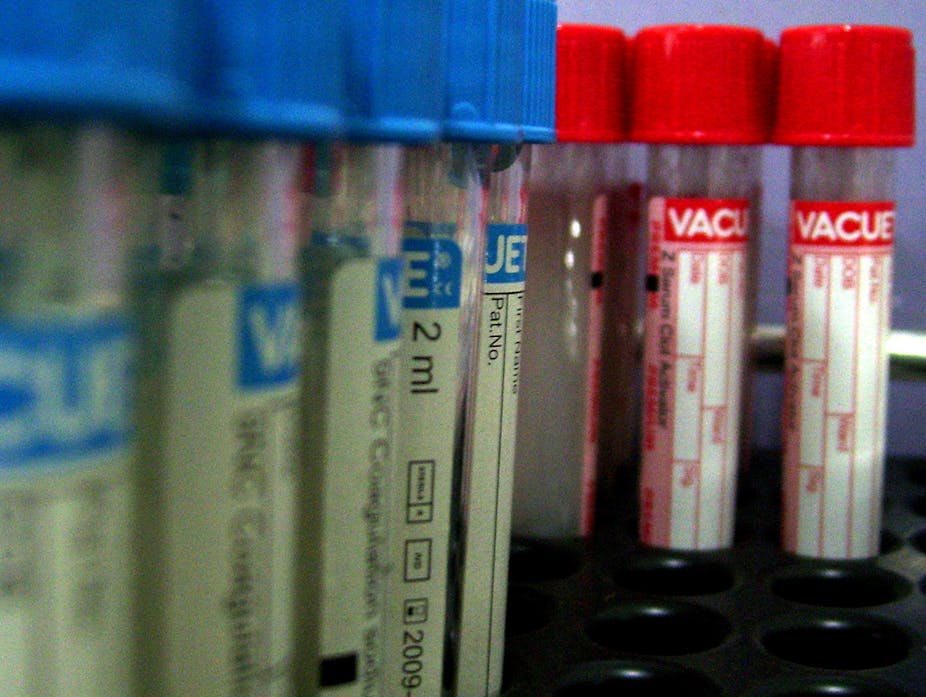A new study has suggested that it may be possible to develop blood tests for suicide by identifying biomarkers in the blood. Although it has its limitations, the study is an important step towards a more comprehensive understanding of the psychiatric map behind suicide.
Almost one million people die from suicide every year. And according to the World Health Organisation, suicide rates have increased by as much as 60% in the last 45 years.
It is therefore crucial that we identify risk factors and introduce preventative measures to tackle the problem. But the problems that lead people to suicide are extremely diverse and complex. Suicidal behaviour is found in many different patient groups: those with mood disorders, who abuse alcohol or drugs, and people with schizophrenia, among others.
Biomarkers, which are the indicators of biological changes in disease states, are increasingly being used to understand a range of medical conditions. For psychiatric disorders, biomarkers can be blood tests, or tests indicating the changes in brain activity.
Some studies have already identified potential cognitive markers of suicide behaviour in elderly depressed patients and bipolar patients. These include poorer decision-making, inability to learn from past experiences and impulsive or compulsive behaviours. Neuroimaging has also shown abnormal brain activity in patients showing suicidal behaviour.
Studies into families have indicated that regardless of what the actual diagnosis is behind those who attempt suicide, their relatives are at higher risk for suicide. This suggests that some genetic factors might underlie suicidal behaviour. Accordingly, biomarkers such as the variation in the genes that regulate the brain chemical serotonin, have been suggested as one genetic biomarker of suicidal behaviour.
However, we don’t yet have any reliable biomarkers which can predict a risk of suicidal behaviour. Compiling a combination of factors and tests might help to locate those most at risk more reliably than is possible to do now. A predictive biomarker could indicate underlying biological changes, for example, which could then allow clinicians to predict a specific behaviour or the course of an illness.
The new study, published in Molecular Psychiatry, investigated four different groups of patients. These were a cross-section of people suffering bipolar disorder, two groups made up of patients with bipolar disorder or schizophrenia, and a group of suicide completers whom were accessed through the coroner’s office to test the validity of any biomarkers the researchers identified. Possible markers were based on previous research conducted with a variety of psychiatric disorders.
The study has some significant limitations - the sample was male only, and the researchers also mainly investigated war veterans, which has obvious drawbacks. But it did nevertheless introduce some potential markers that were associated with suicidal behaviour. They showed that some markers can help predict the hospitalisations due to suicidal behaviour. While we aren’t yet at the stage where we could use a blood test to help predict risk, it moves us one step closer to this in the future.
The research is interesting, but we still need more research to confirm the predictive value of these tests for suicide. The National Institute of Mental Health has announced a strategy to approach behavioural disturbances as domains instead of established diagnoses. Research domains can help understanding biological reasons of behavioural disturbances, for example, impulsivity, independent of the type of mental disorder. This should lead to development of better biomarkers and treatments.
If we can find a way to combine different techniques and introduce some hybrid tests which can tap into different levels of pathological changes, this could be used at the initial clinical assessment of patients. This would provide the clinicians with a clearer picture of the risks when they plan holistic and comprehensive long-term treatment for people suffering psychiatric illness.
We thank Professor Peter B. Jones for giving feedback on this article.

